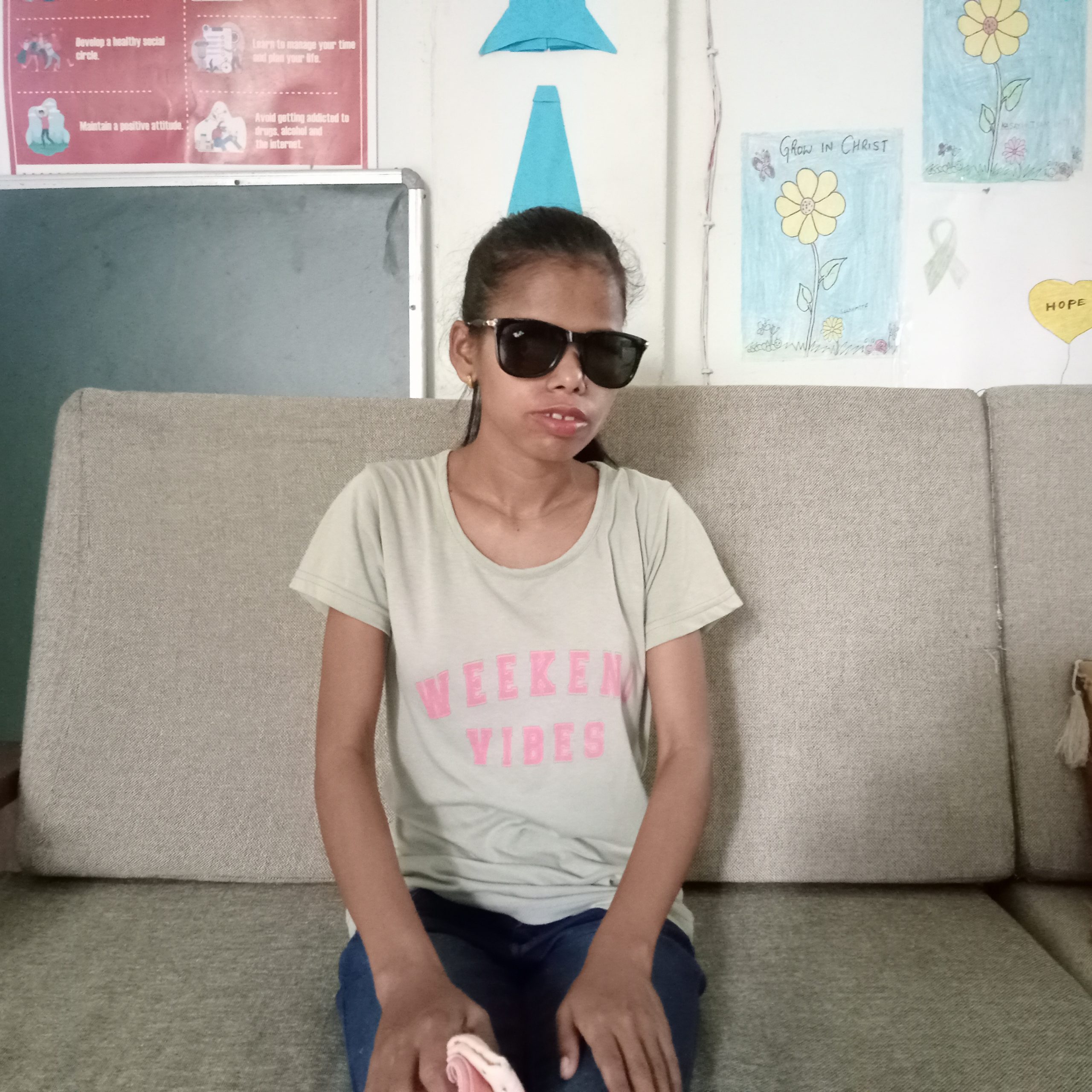FRIDAY, MARCH 14, 2025
- Home
- Lost eyesight, not vision: ‘I never gave up, thanks to my mom’
Lost eyesight, not vision: ‘I never gave up, thanks to my mom’
Published on Jun 30, 2023
Share
"I want to be a teacher not only for visually impaired people but also for those sighted students."

DIMAPUR— Twenty-eight-year-old Labina lost her eyesight when she was just an infant but not her hope and vision in life. She passed High School Leaving Certificate (HSLC) examination conducted by the NBSE this year with a 61.6%.
She had to fight all odds to come this far as schools as well as society are not so sensitive towards the needs of the disabled, but she was beaming with confidence when she shared her life story with Eastern Mirror.
Labina said that she lost her vision when she was just 9-month-old due to a sickness, and her mother, who is the sole bread earner in the family, is also partially blind.
It was her mother’s sacrifice and driving force that spurred Labina to keep going, though she said there were times when she was on the brink of giving up.
She revealed that even her brothers and other family members told her to give up on her studies, as they thought she was wasting time and energy owing to her hearing impairment; they also doubted her capability.
“I passed out my Class 10 at the age of 28 as I never gave up even though I had to sit in a class for two years or so, all because of my mother who pushed me and wanted me to receive education, although she is illiterate and poor,” she shared.
She had to sit for the examination with a scribe, as candidates who are blind or has low vision with more than 40% disability can use the service during an examination.
English and Social Science, she said, were among her favourite subjects.
The teachers at Government High School, Lengrijan in Dimapur, from where Labina passed out her matriculation, said she is “a strong pillar” though they had a hard time during the initial days of her three years at the school.
[bsa_pro_ad_space id=1]Labina’s joy of passing Class 10 board exams was short lived as her family could not afford her to get admitted into a higher secondary school due to financial constraint. Then Dimapur Police came to her rescue by providing her financial assistance and got admitted to Don Bosco Higher Secondary School.
She said that she wants get trained to become a teacher after completing HSSLC and help her family and students like her.
“I want to be a teacher not only for visually impaired people but also for those sighted students as well,” said Labina, who has been staying at Prodigals’ Home for the past four years.
At Prodigal’s Home, there are seven blind students, and she doesn’t want her fellow mates to go through the challenges she faced; she wants to open doors for them.
She said she also teaches them during her free time.
No study material
Sharing her struggling years as a student, she said she was once not allowed to sit for an exam as the faculty doubted her capability.
It was also learnt that Braille books for most of the subjects are not available, so students with visual impairment have to depend on their classmates for notes.
The students have received only Science and Environment Studies Braille books so far, Labina informed.
A source, who did not wish to be named, said that most of the teachers are not happy when there are blind students or students with special needs in their classroom.
[bsa_pro_ad_space id=1]‘Most of them are insensitive and least bothered, while a few go out of their way to assist the students with special needs. The number of such students is less, so the teachers and school can put in a little effort to help and guide them instead of making them feel like they are a burden,’ the source said.
‘Although government schools need better infrastructure, what is more important is sensitivity from teachers and schools towards students with special needs. Students are made to feel ‘I am a burden to the teachers’. There is no orientation for the teachers to deal with such pupils, let alone the infrastructure, which is not friendly for them to use. The system itself is discriminatory,’ it added.
“Education is supposed to be fun and not torture. We should make an environment where they feel free and safe to voice out their difficulties and needs to the school and teachers,” the source continued.
Also read: ESDE to skill individuals with invisible disabilities
vision vision vision vision vision

